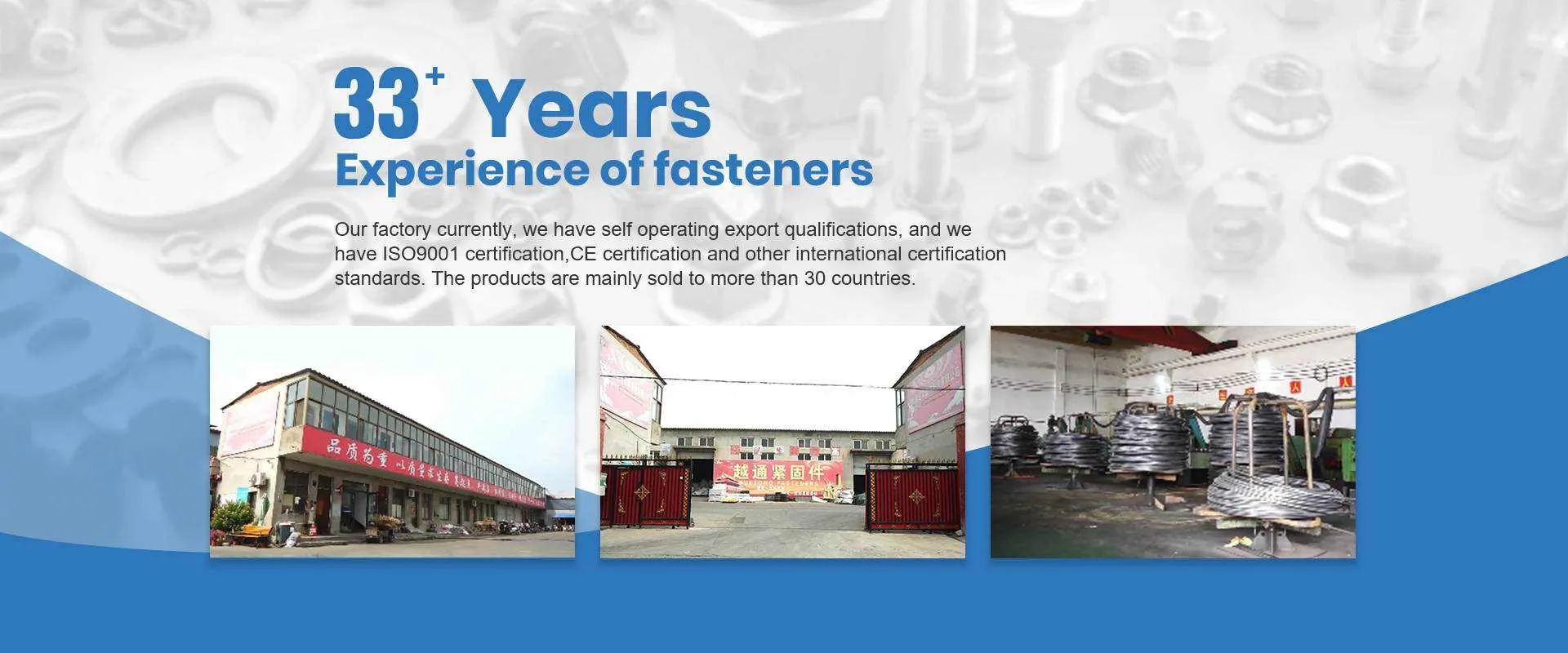Nov . 22, 2024 16:20 Back to list
mild steel nut
Understanding Mild Steel Nuts Properties, Applications, and Benefits
Mild steel, also known as low carbon steel, is composed primarily of iron with a carbon content ranging from 0.05% to 0.25%. This type of steel is renowned for its excellent weldability and formability, making it a popular choice in various industries. One common application of mild steel is in the production of nuts, which are essential fasteners used to secure two or more components together.
Properties of Mild Steel Nuts
Mild steel nuts possess several key properties that make them advantageous for use in numerous applications. First and foremost, mild steel exhibits good tensile strength, allowing it to withstand significant loads. Although not as strong as high-carbon or alloy steels, mild steel offers a balance between strength and ductility, which is crucial when a fastener needs to provide secure fastening without becoming brittle.
Corrosion resistance is another property to consider when discussing mild steel nuts. While bare mild steel is prone to rusting when exposed to moisture, many manufacturers treat their nuts to improve resistance to corrosion through processes such as galvanization or coating with materials such as zinc. This enhancement prolongs the lifespan of the nuts, making them suitable for both indoor and outdoor applications.
Applications of Mild Steel Nuts
Mild steel nuts find wide-ranging applications across various sectors. In the construction industry, they are commonly used in conjunction with bolts to create structural frameworks. These nuts are critical components in the assembly of bridges, buildings, and other infrastructures where load-bearing capabilities are essential.
mild steel nut

In manufacturing, mild steel nuts are frequently used in machinery and equipment. They provide secure connections that enable machines to operate efficiently. From automotive applications to household appliances, the versatility of mild steel nuts makes them indispensable in modern manufacturing processes.
Moreover, mild steel nuts are widely used in the furniture industry, where they are employed to assemble tables, chairs, and cabinetry. Their ease of installation and strength ensures that furniture remains sturdy and durable over time.
Benefits of Using Mild Steel Nuts
The use of mild steel nuts comes with several benefits. They are relatively cost-effective when compared to other materials, making them an economical choice for large-scale projects. Their availability in various sizes and thread types allows for flexibility in design and ensures compatibility with a wide range of fasteners.
Furthermore, the ease of machining mild steel makes it simple for manufacturers to produce nuts with specific dimensions and tolerances. This precision is crucial in ensuring that the nuts fit correctly and function as intended in their respective applications.
In terms of environmental considerations, mild steel is recyclable, making it a sustainable choice in the manufacturing of fasteners. Many industries are moving towards more sustainable practices, and opting for mild steel nuts aligns with these values.
In conclusion, mild steel nuts are vital components in various applications ranging from construction to manufacturing and furniture design. Their unique properties, cost-effectiveness, and versatility make them a preferred choice among engineers and manufacturers. As industries continue to evolve, the relevance of mild steel nuts is expected to persist, reinforcing their importance in modern engineering and manufacturing practices.


